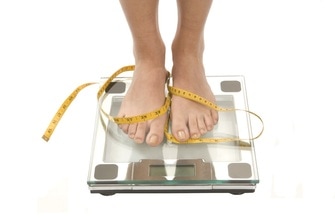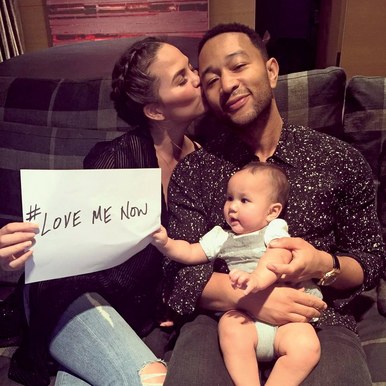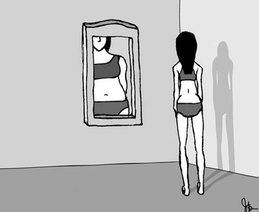
Read more here:
http://www.foxnews.com/entertainment/2017/03/26/downton-abbey-star-opens-up-about-eating-disorder.html
 In a brief but empowering interview, Jessica Brown Findlay shares her personal struggle with #disordered #eating to remind us to keep the dialogue regarding mental health open. Although great strides have been made in attempting to reduce the stigma regarding mental illness, it is far from extinguished. Open conversations regarding mental illness remain to be a taboo topic for many, and as a result, affected individuals are driven even further underground, and subsequently, even further away from the care and support that they deserve. Read more here: http://www.foxnews.com/entertainment/2017/03/26/downton-abbey-star-opens-up-about-eating-disorder.html
0 Comments
A Med School Dean Speaks Out About How the Culture of Medical Training is Fraught With Stress3/23/2017  Speaking out about a tragedy involving the suicide of one of their own medical students, Dr. David Muller, the dean at Icahn School of Medicine at Mount Sinai powerfully expresses how the culture of medical training programs and the expectations of those pursuing a career in medicine can be fraught with stress, leading to anxiety, depression, burnout and suicide. More importantly, beyond addressing some of these "root causes" of medical learner and physician mental health issues, he reminds us all of the importance of support, whether that be provided between peers and colleagues, or through more formal programs and initiatives in medical schools and residency programs. "All these questions will have to be addressed, and the answers incorporated into whatever plan we propose to implement. But in my opinion they will fall far short of addressing one of the root causes of this national epidemic of burnout, depression, and suicide: a culture of performance and achievement that for most of our students begins in middle school and relentlessly intensifies for the remainder of their adult lives. Every time students achieve what looks to the rest of us like a successful milestone — getting into a great college, the medical school of their choice, a residency in a competitive clinical specialty — it is to some of them the opening of another door to a haunted house, behind which lie demons, suffocating uncertainty, and unimaginable challenges. Students bravely meet these challenges head-on while we continue to blindly ratchet up our expectations. From their very first shadowing experience to their first foray in the lab; from high school advanced-placement courses and college admissions tests to grade point averages and the Medical College Admissions Test (MCAT); with helicopter parents, peer pressure, violins and varsity soccer, college rankings, medical school rankings, medical licensing exams, and the residency Match, we never let up on them — and it’s killing them." To read the full article, visit: http://www.nejm.org/doi/full/10.1056/NEJMp1615141  A sneak-peak at some of the great strides the Nova Scotia government is taking in improving mental health awareness and access across the province. To find out more, visit: http://www.cbc.ca/news/canada/nova-scotia/mental-health-to-be-included-in-nova-scotia-school-curriculum-1.4032843  A successful recovery for those with eating disorders is highly dependent upon early intervention. However, many patients feel as though they aren’t receiving access to the care that they deserve, even after discussing their concerns with their GP. This can be tremendously demoralizing for patients who have worked up the courage and bravery to seek out help. “Eating disorders are a competitive disorder – to say to someone you are not ill enough for treatment, you need to be thinner, you are basically saying go away, make yourself more ill”. To read the full article, visit: http://globalnews.ca/news/3276396/young-women-with-eating-disorders-arent-getting-the-help-they-need-study-says/  In her eighth poem of the series, poet Brenda McDonald describes what it's like to carry the burden of a secret. For many one's secret may be their mental illness, their suicidal thoughts, or their struggles with substance abuse and addiction. As Brenda beautifully alludes to, having such a secret can be immensely painful; however, there is light, hope, and relief when one is able to release this darkness by finding someone who they feel safe to share it with.  Put your knowledge and skills to the test with Mr. L who presents himself to hospital following an intentional overdose with acetaminophen. Upon psychiatric assessment, the patient reports that he is depressed, but his mood and suicidal ideation are directly related to his current financial situation as he is worried he cannot afford food or his medical expenses. The patient has a history of a developmental disability, and describes a lack of social support, despite nearby family. He tells you that the hospital could help provide him food and requests $600 to alleviate his financial stressors and suicidal thoughts. He is noted to have been last admitted 3 weeks ago, and has since visited the ER on 2 previous occasions requesting food, money, and residential facility placement. What is your differential diagnosis? How would you manage this patient's requests? "Suicidal and asking money for food" by Kuklinski LF, Davis MJ, and Folks DG (Current Psychiatry). While "Internet/Video Gaming Disorder" is still a controversial diagnosis and is listed as a 'condition requiring further clinical research' in the DSM-5: Diagnostic and Statistical Manual of Mental Disorders, emerging stories such as Cam Adair's, reveal that addictions to internet/video gaming can have powerful negative impacts on one's daily function, relationships, and mental well-being. So why are video and online games so addictive? As Adair describes in his TEDx talk (link below), games are enticing because they offer a temporary escape from one's problems and they are social and offer interpersonal connections that are based solely on common interests and video game prowess which is enticing especially for many who have been bullied in the past. In addition, these games offer a challenge/sense of meaning or purpose and the chance to feel successful, and they're a source of constant measurable growth, frequently providing rewards for the time and efforts kids put in. As he describes in both the article and video, by identifying these critical "four pillars of needs", Adair learned what gaming was providing him, and more importantly, what healthier alternatives needed to provide him with in order for him to be successful in curbing his gaming behaviours. "The proportion of Ontario students with symptoms of a video gaming problem in 2015 was 13 per cent, compared to 9 per cent in 2007, according to a health survey by the Centre for Addiction and Mental Health (CAMH) in Toronto. (It defined symptoms as “preoccupation, tolerance, loss of control, withdrawal, escape, disregard for consequences, disruption to family/school.”) And boys are four times more likely than females to exhibit problem gaming, CAMH says... ...A number of studies have consistently shown that individuals addicted to gaming show a “comorbidity” — one or more additional conditions — such as ADHD (attention deficit hyperactivity disorder) and MDD (major depression)". To learn more about Adair and his story, check out these links: https://www.thestar.com/news/insight/2017/03/05/16-hour-video-game-binges-almost-ruined-calgary-teens-life.html  In a powerful essay for Glamour magazine, Chrissy Teigen shares her experience with postpartum depression, following the birth of her daughter Luna. Postpartum depression is very common as it can affect up to 20% of new mothers. However, as Chrissy eloquently describes, it can be incredibly difficult for one to recognize the disorder amongst themselves, but help is available in the form of additional support, psychotherapy, and medication. "Before the holidays I went to my GP for a physical. John sat next to me. I looked at my doctor, and my eyes welled up because I was so tired of being in pain. Of sleeping on the couch. Of waking up throughout the night. Of throwing up. Of taking things out on the wrong people. Of not enjoying life. Of not seeing my friends. Of not having the energy to take my baby for a stroll. My doctor pulled out a book and started listing symptoms. And I was like, “Yep, yep, yep.” I got my diagnosis: postpartum depression and anxiety ... ... Before this, I had never, ever—in my whole entire life—had one person say to me: “I have postpartum depression.” Growing up in the nineties, I associated postpartum depression with Susan Smith [a woman now serving life in prison for killing her two sons; her lawyer argued that she suffered from a long history of depression], with people who didn’t like their babies or felt like they had to harm their children. I didn’t have anything remotely close to those feelings. I looked at Luna every day, amazed by her. So I didn’t think I had it. I also just didn’t think it could happen to me. I have a great life. I have all the help I could need: John, my mother (who lives with us), a nanny. But postpartum does not discriminate. I couldn’t control it. And that’s part of the reason it took me so long to speak up: I felt selfish, icky, and weird saying aloud that I’m struggling. Sometimes I still do." To read the full story, visit: http://www.glamour.com/story/chrissy-teigen-postpartum-depression  Access to care is one of the largest barriers facing individuals with eating disorders. An innovational approach to eating disorder treatment is emerging, however, in response to this issue. Mobile applications have emerged that enable patients with eating disorders to connect with their treatment provider electronically between sessions. Patients can log their food intake/meals as well as thoughts, behaviours, and emotions (and more) throughout the day, which can be viewed by the treatment provider electronically. The application enables users and their respective health care providers to recognize patterns and associations regarding the disordered behaviour. In addition, patients can communicate with their treatment provider electronically in between formal appointments. Such mobile applications have also offered user’s the ability to access acute crisis support services and chat lines. Mobile access to support may not only help in addressing the issue of access to care, but may be extremely valuable for those who are less comfortable seeking care in-person, those who are geographically isolated from treatment facilities, or those who are less confident in seeking help. It would also provide an opportunity for continued care and support between formal appointment sessions. Read more here: http://abcnews.go.com/Health/treatment-eating-disorders-mobile/story?id=45898259  In this poem, Anna Lente, poet, artist, and The Mighty contributor, helps us to grasp a little understanding of what it's like for individuals who suffer from multiple mental health disorders such as anxiety and bipolar disorder. "... Another day Mania spins me in circles, My mind leaping to dizzying heights, Spiraling flights of thoughts, Dangerous impulses, While I use every bit of my inner strength to Sit and stay, Waiting for the eventual Crash back into depression. Then crawling out from depression Back to something akin to normal. Some days loud, crowded spaces trigger panic attacks. I enter rooms looking for empty corners and exit signs. I enter conversations listening for pauses so I can escape. A panic attack means a quick retreat To the safe space of my car, The comfort of my home. I cover myself in blankets In the comfortable cocoon of my recliner, Listen to my favorite songs on repeat, Tell myself everything will be OK..." To read the full poem, visit: https://themighty.com/2017/03/poem-living-with-multiple-mental-illnesses/ |
Description
Supporting and enhancing students' and health professionals' knowledge and understanding of mental health and psychiatry
Archives
June 2017
Categories
All
|